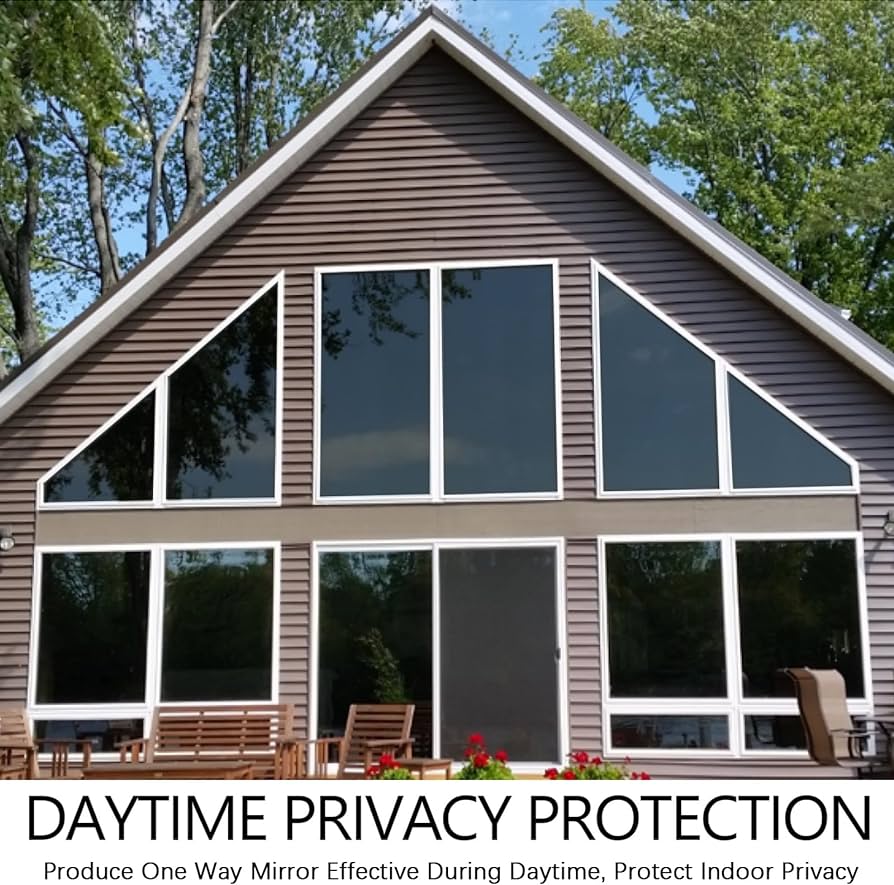Residential Window Tint: Shield Your Furniture from UV Damages
Residential Window Tint: Shield Your Furniture from UV Damages
Blog Article
Exactly How Residential Window Tinting Enhances Your Home's Energy Performance
Residential home window tinting offers a compelling service for home owners looking for to enhance energy effectiveness within their living areas. By using specialized movies to home windows, it effectively decreases warm transfer, consequently maintaining interior temperature levels and reducing the need for extreme heating or cooling.
Comprehending Home Window Tinting
Comprehending home window tinting is crucial for homeowners seeking to enhance both comfort and energy efficiency in their space. Residential Window Tint. Window tinting includes the application of a thin film to the interior or outside surface area of glass home windows. This movie can dramatically modulate the quantity of sunshine and warmth that goes into a home, therefore influencing indoor environment conditions
There are numerous kinds of window tinting movies offered, each with distinct properties. The performance of window tinting is often gauged by its Visible Light Transmission (VLT) portion, which shows exactly how much light can pass through the movie.
Benefits of Power Effectiveness
Home window tinting not only boosts appearances however also plays a considerable role in enhancing energy performance within household areas. By reducing warm transfer via windows, colored films produce an extra stable interior environment, which can result in substantial reductions in energy intake for heating and air conditioning. This power efficiency converts into lower energy costs, offering home owners with substantial long-lasting cost savings.

In addition, home window tinting enhances the comfort of living rooms. By decreasing glow and blocking dangerous UV rays, colored windows create an even more enjoyable atmosphere, which can bring about improved health for residents. The protection versus UV rays also aids protect furnishings and flooring from fading, adding to the long life of home things.
Exactly How Tinting Functions
Tinting films run with a mix of sophisticated materials and modern technologies developed to regulate the amount of solar power entering a home. Mostly composed of polyester, these movies typically include metallic or ceramic particles that soak up and reflect warmth. This dual ability permits them to substantially reduce the infiltration of ultraviolet (UV) rays and infrared radiation while allowing visible light to travel through.
The effectiveness of window tinting is gauged by its solar heat gain coefficient (SHGC), which suggests how much solar power is sent through the window. Reduced SHGC values are better as they denote higher heat being rejected. In addition, window tints can feature a selection of tones, allowing property owners to tailor their visual choices while enhancing energy effectiveness.
In addition, these movies act as a barrier, avoiding warm loss throughout cooler months by mirroring indoor warmth back right into the living space. This thermal insulation effect enhances the cooling benefits obtained during warmer months, contributing to a well balanced interior environment year-round. By handling solar power properly, domestic window tinting not only enhances comfort but likewise plays an important function in minimizing energy usage and reducing utility bills.
Choosing the Right Tint

There are various types of window films offered, consisting of colored, metalized, and ceramic. Ceramic movies provide outstanding warm control without endangering presence and are very durable, making them a popular choice.
Visible light transmission (VLT) is another vital variable, as it shows the quantity of all-natural light that can pass via the tinted glass. Homeowners must pick a tint with a VLT that matches their lights choices while still giving ample glow decrease.
In addition, analyzing the solar warmth gain coefficient (SHGC) can aid establish just how well a color can block warm from sunlight. A lower SHGC shows far better warmth control, inevitably improving energy effectiveness.
Setup and Maintenance Tips
Proper installment and upkeep are important parts in maximizing the advantages of domestic window tinting. To attain ideal outcomes, it is a good idea to hire a certified expert for installation. This makes sure that the tint is official source used properly, staying clear of air bubbles, wrinkles, or imbalance that might compromise performance. Professionals likewise use specialized devices and techniques, which can boost YOURURL.com the toughness and efficiency of the color.
Complying with installment, upkeep is vital to lengthen the life of the window film. It is suggested to wait at the very least one month prior to cleansing the tinted windows to enable the glue to heal fully. When cleaning, utilize a soft towel and a mild, ammonia-free cleaner to avoid damaging the film. Prevent unpleasant materials that could scratch the surface area.
In addition, normal inspections are useful. Look for any kind of peeling or bubbling, which can show inappropriate installment or put on with time - Residential Window Tint. Addressing these issues promptly can prevent further damages and keep power performance. By sticking to these setup and maintenance suggestions, property owners can ensure their window tinting remains to provide substantial power cost savings and comfort for many years to come.
Conclusion
In conclusion, household home window tinting offers as an effective option for enhancing energy performance within homes. By decreasing warmth transfer and blocking dangerous UV rays, window films add to decrease energy usage and boosted indoor comfort.
Home window tinting involves the application of a thin movie to the inside or outside surface of glass windows. By minimizing warmth transfer through windows, colored movies develop a more stable indoor environment, which can lead to substantial decreases in energy consumption for heating and cooling.The performance of home window tinting is gauged by its solar heat gain coefficient (SHGC), which indicates just how much solar power is look at this web-site sent through the window. By managing solar energy successfully, household home window tinting not just boosts convenience but also plays a vital role in decreasing energy usage and reducing utility expenses.
By decreasing warmth transfer and blocking damaging UV rays, window films contribute to lower energy consumption and boosted interior convenience.
Report this page